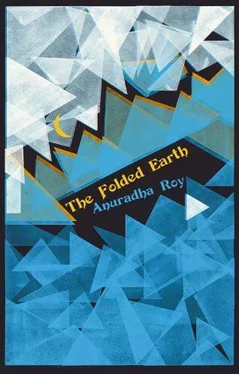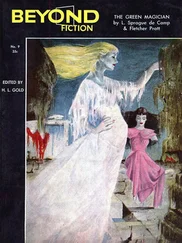When I reached Aspen Lodge, I stood for a few minutes at the edge of the lawn, looking at the crowd and considering a quick retreat. Silk saris shimmered past. There were men in tweed jackets and lambs-wool pullovers. The lawn was full of people I had never seen before. My fingers plucked at my clothes. I wished I had not arrived straight from work. I had put on my best kurta that morning in honour of the lunch, but it was hidden beneath my thick, many-coloured winter shawl which Diwan Sahib always said would do nicely for a rug. My hair was probably dusted with white chalk from writing on blackboards.
I took shelter behind a wide-trunked chestnut tree, plucked out the striped pencil that held my untidy bun in place, and ran my fingers through my hair. I neatened my shawl, rubbed the dust off my shoes with a handkerchief and before I could change my mind and leave, I made my way towards the nearest person. It was the Sub-divisional Magistrate, who was talking to Mr Chauhan, the Administrator, congratulating him on the educative slogans he was putting up all over the town. Our host, the hotel manager, stood by looking deferential, as was politic before our town’s two highest-ranking bureaucrats.
“The messages are very good, especially for the young,” the Magistrate was saying to Mr Chauhan. Mr Chauhan looked down at the glittering toecaps of his shoes. Ever since he had been posted to Ranikhet, about six months before, he had been writing slogans which he then made his staff paint on rockfaces, or on boards that were then nailed to trees all over town. You could no longer take more than a few steps without meeting a sign.
“It gives a certain distinction to the place,” the hotel manager said. “Such educative signs.”
Early in his time in Ranikhet, Mr Chauhan had brought a school exercise book to share with us when we invited him to St Hilda’s to give away prizes on one of our sports days. The book had a bright, hard cover that showed a magenta-cheeked baby with large eyes, holding a pen in dimpled hands. The cover said “Apsara Single Ruled for your Writing Pleasure”. In the slots for “Name/School/Subject”, he had written “Avinash Chauhan/Administrator Ranikhet/Signs for People Betterment.” When Mr Chauhan held the exercise book towards me and Miss Wilson, I had noticed a tremor in his hands. For a moment, he had looked very much like one of our students.
“I have not shown these to anyone before. Please give me your honest opinion, Mams,” he had said.
Inside the exercise book were line after line of slogans, written in blue ballpoint:
Get Fresh on This Footpath
Keep Your Side, Don’t go Wide
Forest is Poor Man’s Overcoat
Enjoy Thrills of the Hills
Mountains are Fountains of Joy
Walk in Nature Zone, It is Health Prone
Be Careful of Flying Balls
“The last one is for the Army Golf Course,” he had said, noticing my nonplussed look. And then: “My teacher — in Ranchi, you know, that is where I grew up — my teacher told me I had real talent. I won all the essay-writing prizes. Once I wrote an essay on a picnic to Dasham Falls and he said: ‘You have real talent, young Avinash,’ that is what he said.”
“Yes of course you do, Mr Chauhan,” I had said. “You must not waste it.”
But today Mr Chauhan seemed not to remember who I was. He spoke only to the manager and the Magistrate, pursing his lips and saying, “A little guidance at the right time is very valuable.” He had a small, officious-looking moustache, and though he was otherwise skinny, a paunch the size of a watermelon pushed out his navy-blue pullover. The bazaar gossip, which Mr Qureshi reported to Diwan Sahib daily, was that Chauhan had made enough from kickbacks in his six months here to build himself a three-storeyed house in Lucknow.
“It is also good that you are going to replace the parapets. These old stone ones are so untidy, grass and wild plants growing out of them,” the manager was saying.
“I am putting benches also,” Mr Chauhan said in the Magistrate’s direction. “You will see. Ranikhet has to become the Switzerland of India. Or at least it must be another Shimla. I am making a View Point. With telescope. For one rupee anyone can worship Nanda Devi-ji through zoom lens. And furthermore I am getting many roads re-laid.” After each of Mr Chauhan’s statements, which came with stately pauses in between, the manager murmured, “Point taken, Sir. Point well taken.”
“The roads, that’s urgent,” said the Sub-divisional Magistrate. “Has to be done on a war-footing.” He looked well-informed and important. A uniformed bearer hovered by his elbow holding a tray laden with little samosas. The Magistrate paid him no attention at all.
“Will the metalling of Mall Road go so far as our properties?” the hotel manager enquired in a hesitant voice. “You know, tourism is ruined by bad roads. This road was last repaired ten years back, I hear, but now — ”
“Not this time, not this time,” Mr Chauhan said. “I would like all of Ranikhet to have smooth roads, but this time our budget allows repair of only one part of Mall Road, for administrative purposes.”
I cleared my throat and said, “If only you could repair the road going to St Hilda’s! Our children have a hard time.”
The Magistrate and my host noticed me at last. Together they said, “Madam, you must be — ”
“Maya Mam,” Mr Chauhan said, beaming at me in an unlooked-for burst of bonhomie. “A teacher at the Convent. A valuable citizen! She teaches her children to make jams and jellies.”
“They do schoolwork,” I said. “But they need practical skills too.”
I opened my mouth to expand on the topic, but the men had moved on already to another: who would be the candidates for the elections coming up? The two main contenders for the Nainital seat had already begun campaigning. Surely the B.J.P. would win — the time was ripe for Hindus to govern their own country, show the world, they agreed. “Will the Minister change?” the manager said to the Sub-divisional Magistrate, who replied, “I am a mere servant of the people and have to humour whichever Minister I get.” They laughed together and raised their glasses in a mock toast. The hotel proprietor, unsure of lunchtime protocol in a new town, had served no alcohol. They had to say their “cheers” with plain Coke and Kissan orange squash. His wife was in Delhi still, he said to me, apologetic. “That’s why things are a bit disorganised.” She would come in a month, when it was a little warmer.
I looked around for Diwan Sahib, whom I spotted sitting at a plastic table under a plum tree snowy with blossom, tipping his hip flask into his glass, making no attempt to be discreet. He had come in a dark-blue shirt against which his white shock of hair and beard looked whiter and more dishevelled than usual, giving him a raffish air. He threw a twisted half-smile in my direction and nodded to me to come across. The wives of the other guests, who sat in a separate group further away, sipped their squash and darted him exasperated looks. One said as I was passing, “We must have more lunch parties, but only for select people.”
They looked around the relaid garden and admired the geometric precision of the flowerbeds. Within the beds, segregated by colour and type, were the plants that would flower in summer. Several flowers already bloomed in the martial lines of tulips, lilies, and carnations, staked and tied with string so they could not stray. Some of the women got up from their chairs to examine the flowerbeds closer too, so as to show off their saris. When one of them bent down to sniff the tulips, her companion broke into giggles and exclaimed, “Oh Mrs Sood, those flowers have no smell! They are tulips. They come from Holland. I went there once on a Thomas Cook tour! Whole fields of tulips, as if they are wheat or rice — this is nothing.”
Читать дальше












